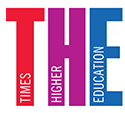Consultants argue Humboldtian ideal of research-informed teaching ‘shackles’ institutions into uniformity
Australian universities are “shackled” into uniformity by a Humboldtian ideal of research-informed teaching, even though assessment exercises show that performance in the two spheres is largely unconnected, a new study argues.
The paper, by consultants Nous Group, blames Australia’s provider standards for the lack of diversity among the country’s universities. These reserve university title to institutions that conduct research in at least three disciplines, but leave providers too scared to try anything different, the study says.
The standards are also accused of driving a perverse regime of opaque funding arrangements, with A$2 billion (£1.1 billion) of research cross-subsidised by tuition fees.
“We shackle the best of everything by demanding the same from everyone,” says the Nous paper.
The paper argues that the time is ripe for change, with both the governing Coalition and opposition Labor Party questioning the future of tertiary education structures.
“Sensibly constructed, reframed policies could properly fund different kinds of research and allow more diversity – at better value – in teaching and learning,” the paper says.
The paper proposes a new category of university, focused primarily on teaching and able to deliver degrees at a lower cost – leaving students with “less substantial debt imposts” in the process.
Such an approach would also be cheaper for the government, the paper says, adding that the savings could be allocated to a merit-based research fund and a separate fund for “place-based research and engagement”.
“Universities could choose which funds they compete for, based on their strengths and missions, unimpeded by the need to stretch resources to meet centralised regulatory requirements,” the paper says.
For the study, published on 24 October, Nous plotted universities’ average research scores, as assessed under the Excellence in Research for Australia exercise against Quality Indicators for Learning and Teaching scores for teaching, student experience and career outcomes.
All three show little correlation between teaching and research, the paper says. Institutions with high QILT results often score lowly on ERA and vice-versa.
The Nous paper builds on an April offering from its principal consultant, former Canberra bureaucrat Robert Griew. It has emerged six days after the government announced the appointment of former Queensland University of Technology vice-chancellor Peter Coaldrake to head a long-awaited review of Australia’s higher education provider category standards.
Education minister Dan Tehan explained that the review would examine whether the standards should “evolve” to improve the sector’s flexibility and transparency. “It’s important the provider categories can accommodate changing practices in higher education and encourage choice of educational offerings,” he said.
Australian National University vice-chancellor Brian Schmidt delivered a passionate defence of the Humboldtian tradition last month, in a keynote speech to Times Higher Education’s World Academic Summit in Singapore.
Professor Schmidt warned that severing the teaching-research nexus would trigger a “dangerous and unsustainable” cycle where teaching eventually became “completely decoupled from the research of the day”.

0 Comments